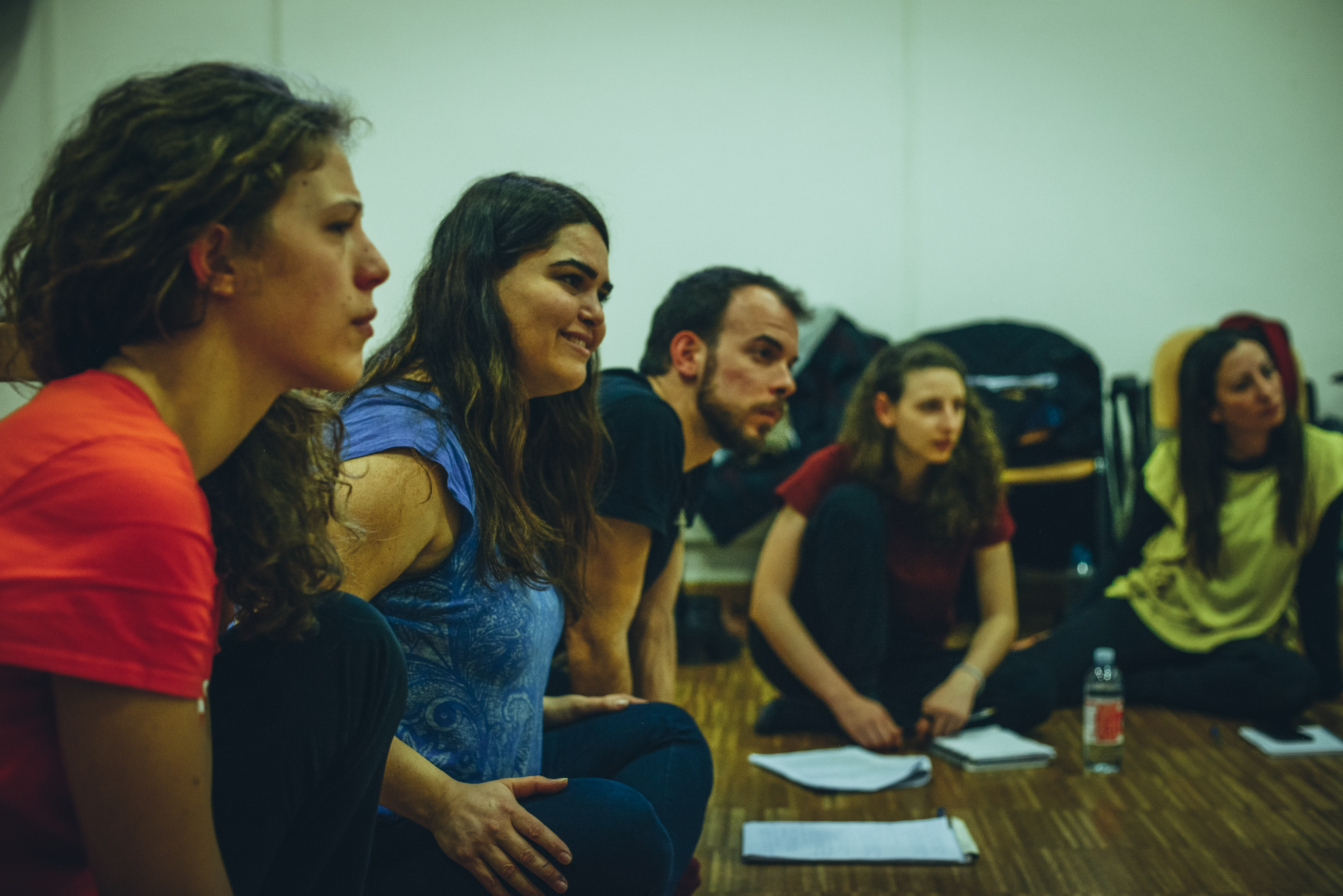Next morning, I am visiting Teatri di Vita, a beautiful theatre located in the suburbs of Bologna, in the middle of a park. I am meeting Dorothée Munyaneza and have the chance to attend to the general rehearsal of her performance “Samedi Détente”. Another very strong experience.
A question by Dorothée during the play, still echoes in my head… “Where you in April 1994?”. At the hearing of the phrase, I Instantly entered the realm of introspection and stayed there a good while. Where was I, when the Tutsi were being massacred in Rwanda? Where were we both dear reader, when more than 360 souls were drowning in the waters of Lampedusa in 2013? This is her way to connect with the spectator, by creating a common place in space and time, where all subjectivities meet, Dorothée will tell me, a couple of days later.
After the rehearsal, Julia, a university student from Bologna doing an internship in HOME festival, drives me back to the city. We have a very interesting talk on the city and she tells me that even though she loves Bologna, she would also like to leave and live elsewhere. And here comes the paradox, the controversy of our times, there’s people who have the choice of leaving their home and travel the world to satisfy whatever needs they have and at the same time there’s the people that need to leave their home, not by choice but by force and they are not allowed to travel. It seems to me that, regardless the technological advancements of our times, we are still unable to fathom the importance and the effect of movement in our lives and our world. It is one the points we all meet in a human way, striped of all other characteristics. Our dreams, our hopes, our fears, our will to survive. Kristina Norman, through her docu-performative work, is meeting the people participating in her upcoming project “Lighter Than Woman”, in their everyday life. She explains through what processes people are integrated in a new society, what are their aspirations and routines…
If I hear your sound, I hear your soul…
Back to DAMSLab, I am asking Nanda Mohammad about the effect of movement on her, how did having to leave her home in Syria, changed her as a person and artist. While attending the last session of her masterclass “Speaking from Damascus”, I realize that not only it did change her but has defined her training work with actors. It is overwhelming to see someone struggling to express themselves in a language they don’t understand at all and through the struggle, to shine. Right across the venue is the hospitable space of the CostArena cultural centre, where I am spending enough time in between performances and interviews, to have some quite time to go through my notes, the material and eventually, have a break. If I were to describe Bologna with 3 words, as I have asked some people here to do, I would say ‘open, people and streets’, and this openness I have experienced in various occasions in the quiet courtyard of the centre.
So, as I am having a beer and scribbling on my notebook, an unexpected guest invites himself to my table. Mister Michele, 80 years, asks me if I am professional photographer, because he needs help with his new camera. In a crazy conversation, full of bad Italian and a lot of pantomime, I manage to explain some of the basic features and we unanimously decide it’s better to keep everything in auto mode.
Michele’s son is married with a woman from Taipei. He went there last Christmas for holiday and stayed for three weeks. He was amazed by the politeness of people and their organization. He says “In Italy, sometimes we think we are the only ones that care about hospitality and politeness. So I had a completely different idea about their culture and I was happily surprised”. At 80 years old, he’s far more progressive and adaptive than a lot of people of my generation. As Nanda was telling the participants, “we should fight our own clichés” …

In parallel to a busy schedule of events taking place at DAMSLab, a performance is getting rehearsed at San Martino Theatre everyday. “The Niger of Narcissus” is the new theatrical production by Cantieri Meticci, a contemporary rewriting of Joseph Conrad’s novel. Originally, the book tells the story of a ship upset by the entry on board of James Wait. In Cantieri Meticci’s version, the migrant, the African, the black foreigner – labeled as the original and eternal enemy, is seen both as a real and spectral figure. The spectators moved through space, organised like a labyrinth, going in and out of giant cubes where they could write their thoughts and emotions that the performers triggered in them. The scenography designed by Sara Pour played a significant role in attempting to build connections between different migration-related themes, and generating new modalities of relation.
Continue to part 3/3



